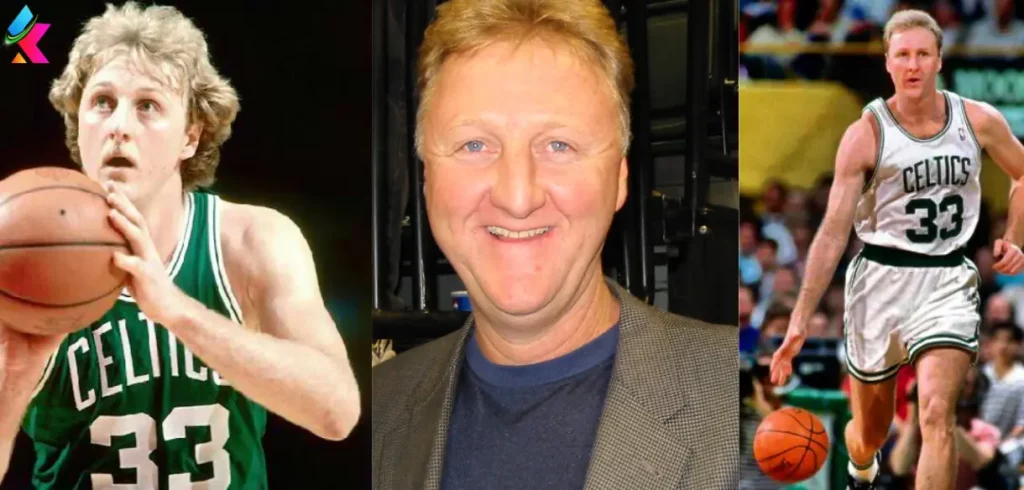
Larry Bird Confesses Disdain for the Three-Point Shot…
In a revelation that has sent shockwaves through the basketball community, NBA legend Larry Bird has admitted that he never liked the three-point shot, a statement that contradicts the image of one of the game’s greatest shooters. Bird’s candid admission came during a recent interview, where he confessed that the only time he seriously practiced three-pointers was right before the iconic three-point contest in 1988. This startling confession has sparked a flurry of reactions from fans, analysts, and former players alike, offering a fresh perspective on Bird’s illustrious career and the evolution of the game itself.
The Revelation: A Surprising Confession
Larry Bird, known for his sharpshooting and clutch performances, revealed his true feelings about the three-point shot during an in-depth interview on a popular sports podcast. The former Boston Celtics star, who is widely regarded as one of the greatest basketball players of all time, shared an insight that few would have expected.
“I never liked the three-point shot,” Bird said bluntly. “The only time I practiced them was right before the three-point contest in 1988. I always preferred to focus on other aspects of the game, like mid-range shooting, passing, and defence. The three-pointer was never a significant part of my game strategy.”
Context: Bird’s Relationship with the Three-Point Shot
Larry Bird’s career spanned from 1979 to 1992, a period during which the three-point line was still a relatively new addition to the NBA, having been introduced in the 1979–1980 season. Bird’s shooting prowess from long range was evident, but his game was built on versatility and a high basketball IQ that extended far beyond the arc.
Despite his reluctance to embrace the three-point shot, Bird’s proficiency from distance was undeniable. He won three consecutive NBA Three-Point Contests from 1986 to 1988, solidifying his reputation as one of the league’s premier shooters. His iconic performance in the 1988 contest, where he famously walked off with his finger raised before the final shot even went in, remains one of the most memorable moments in All-Star Weekend history.
Reaction: A Mix of Shock and Understanding
Bird’s admission has garnered a wide range of reactions from the basketball world. Many fans and analysts were shocked to learn that one of the most legendary shooters in NBA history did not prioritise the three-point shot.
Magic Johnson, Bird’s long-time rival and friend, expressed surprise but also understanding. “Larry was a master of the game in so many ways,” Johnson said. “His ability to dominate without relying heavily on the three-pointer just shows what a complete player he was. This revelation just adds another layer to his legacy.”
Stephen Curry, the modern-day king of the three-point shot, also weighed in on Bird’s comments. “It’s interesting to hear that from Larry,” Curry said. “He was such a great shooter, but it goes to show how the game has evolved. Back then, the three-point shot was more of a novelty. Now, it’s a cornerstone of the game.”
Analysis: The Evolution of the Three-Point Shot
Bird’s comments highlight a significant shift in the NBA’s approach to the three-point shot over the past few decades. During Bird’s era, the three-pointer was not as integral to team strategy as it is today. Teams focused more on mid-range jumpers, post plays, and physical defence. Bird’s ability to excel without heavily relying on the three-pointer underscores his versatility and adaptability as a player.
In today’s game, the three-pointer is a critical element of offensive strategy. Players like Stephen Curry and Klay Thompson have revolutionised the game with their long-range shooting, making the three-point shot a primary weapon. Teams now prioritise spacing the floor and creating open three-point opportunities, a stark contrast to the style of play during Bird’s career.
Bird’s Legacy: Versatility and Basketball IQ
Larry Bird’s legacy is defined by his all-around excellence and high basketball IQ. His ability to impact the game in numerous ways—scoring, passing, rebounding, and defense—made him one of the most complete players in NBA history. Bird’s admission about his limited practice with the three-point shot does not diminish his legacy; rather, it enhances it by highlighting his mastery of other aspects of the game.
Bird’s career statistics speak volumes about his versatility. He averaged 24.3 points, 10.0 rebounds, and 6.3 assists per game over his 13-year career. His shooting percentages—49.6% from the field, 37.6% from three-point range, and 88.6% from the free-throw line—demonstrate his efficiency and skill across different scoring methods.
The Impact on Young Players
Bird’s revelation offers an important lesson for young players and coaches. It emphasises the importance of developing a well-rounded game rather than relying solely on one aspect, such as the three-point shot. Bird’s success came from his comprehensive understanding of basketball and his ability to excel in various facets of the game.
Conclusion: A New Perspective on a Legend
Larry Bird’s candid admission about his disdain for the three-point shot has provided a fresh perspective on his legendary career. It underscores the evolution of basketball and highlights Bird’s exceptional ability to adapt and excel without heavily relying on the long-range shot. As the NBA continues to evolve, Bird’s comments serve as a reminder of the diverse skills and basketball intelligence that defined his greatness.
Bird’s legacy remains intact, and this revelation adds another layer to his storied career. Fans and analysts will continue to celebrate Bird’s achievements while also appreciating the broader context of his success. As the debate about the importance of the three-point shot in modern basketball continues, Bird’s perspective offers valuable insight into the evolution of the game and the timeless qualities that define true basketball excellence.
Leave a Reply